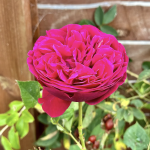On fertile void of autumn
Good morning. I hope your Saturday is starting softly. My week was most intense, so I am noticing just how grateful I am for this Substack space this morning: each time I arrive to write here, I feel spaciousness and freedom of possibilities; I put down the week’s load and enter a restful state of mind.
Roses are back, and it feels like the second summer. Most of our rose bushes are in bloom now. September in the UK always feels like a combination of seasons: predominantly autumn, second summer, and a little spring with fruit trees forming flower buds again. It can feel confusing, although I personally find it pleasantly adventurous.
The hedges are on fire with gorgeous red berries, and I cannot get enough of them – I really should be cycling to work, but I prefer to walk to take them in at a slower pace.
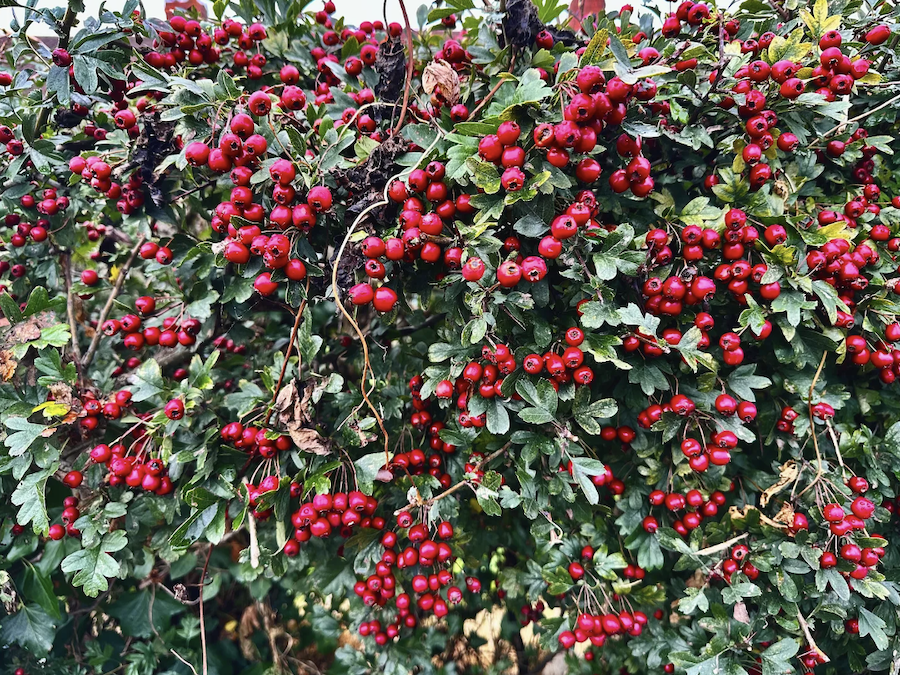
The allotment keeps on giving – we are picking up our very few squashes (I am still learning how to grow them well). We restrained ourselves this year and allowed the carrots to grow a bit, although I cannot say the same about the parsnips. Beetroot, the highlight of this year, keeps coming!
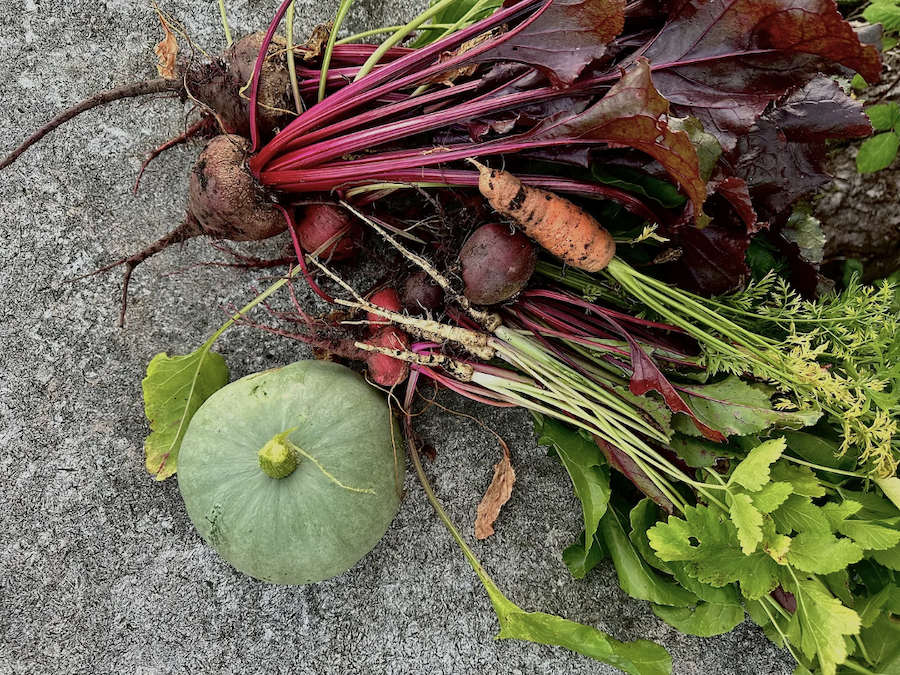
Autumn is indeed in full swing. On Tuesday, I picked the first conquer on the estate where our charity is situated. It’s so exciting to look at the small tree above the entry gate for weeks at the forming round and spiky balls and then one day see a lush dark brown opening, the announcement: we are here! I had to hold back on how many beautiful conquers I placed in my deep pockets – we should always leave some for others.
And so now, those little brown treasures will be drying out to join other Nature items for our sand tray therapy work. I am reminded to listen to the Spell Songs again.
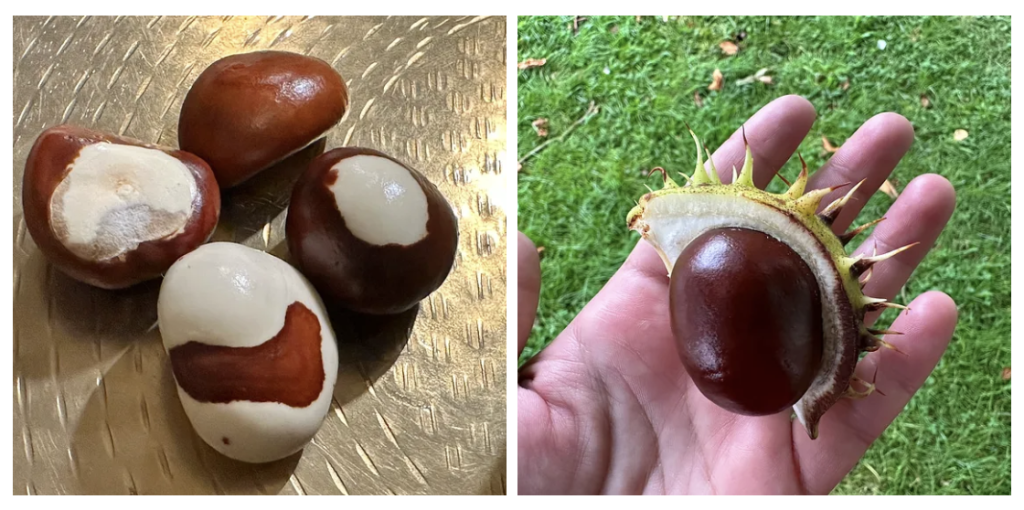
I am also collecting feathers – so many of them. Our resident street magpies left a stunning bluish-black feather at our front gate, so I left it in the ground like a flag announcing the slow arrival of wintering and the rather sudden shortening of days.
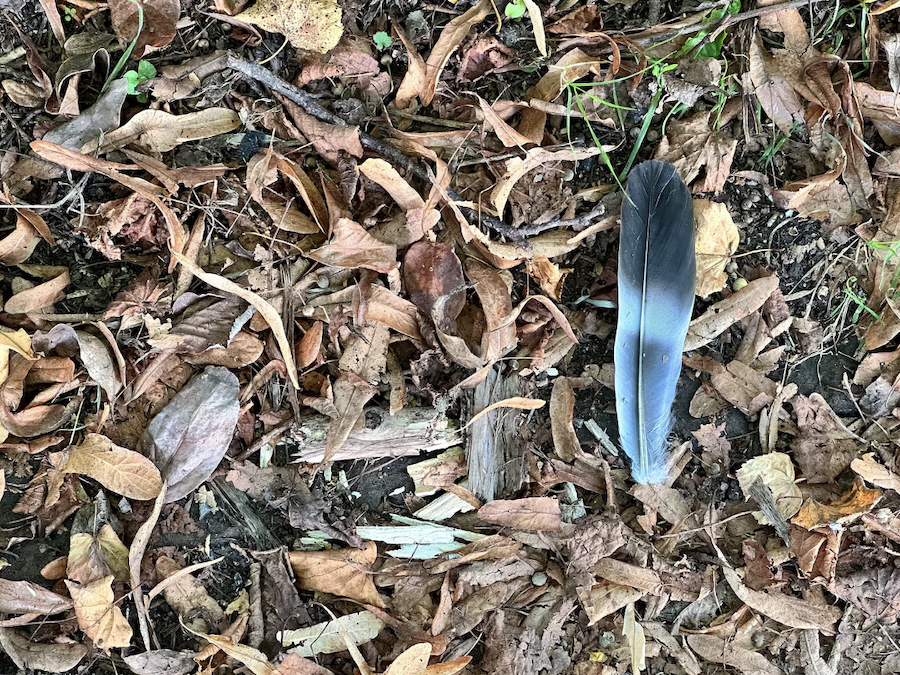
Autumn is my favourite season because it is a time of letting go, change and the beginning of renewal – the quiet announcement of slowing down before a new cycle of life begins. This year it is especially an incredibly visceral experience for me because, after the Brexit trauma, I am sitting purposefully in at least a year-long fertile void to understand what this experience has taught me. I cannot predict how long the healing will take, but I already feel it will last longer than a year, and that’s okay. It’s important to allow time for healing.
Fertile void is a stage of experience (any experience in our life, no matter how large or small), and it is a concept of Gestalt therapy. Tony Frazer explains fertile void so well I’d rather introduce his words here:
My understanding of the Fertile Void does not equate to doing nothing. The notion of the Fertile Void seems to me less to concerned with activity versus inactivity and more to do with Purpose and Awareness. The Fertile Void is the phase of the cycle of Gestalt formation and destruction where there are no ‘Figures’, nothing stands out as being of particular interest and no energy is being directed to Sensations or Awareness. So the fertile void is the natural consequence of Withdrawal after Completion there is no unfinished situation or unresolved need that pulls my attention for the moment.
What is the value of fertile void, you ask me. We usually move from one experience to another, maybe even without noticing it. In fact, we may find ourselves rushing into the next experience quickly and just carrying on. However, if we do slow down and pay attention to this empty space, once all the dust and the intensity of the experience settle, we may be able to identify and feel meaningful learnings. For me personally, this is exactly where the most intuitive and rich learnings sit. I also like to pause and reflect on life’s shifts, currents and storms. What’s in the silence after the storm?
Mind you, if the experience is traumatic, I was told by a Gestalt practitioner this week, the void may initially feel flat, empty, or even inaccessible. So we need to wait, re-connect with ourselves and listen. The more I read about the fertile void and practice it this year, the more I realise that active and aware work in this stage of experience requires a solid and strong connection with our inner selves.
It’s quite helpful for me, in fact, to think about the current project – moving an offered greenhouse to our allotment. It serves as a perfect metaphor for this process. First, we need to number all the glass panes and metal bars and dismantle the structure containing so much potential space for growth. Next, we carefully transport it to our allotment. Soon, we will start rebuilding the structure, adding the glass panes, and maybe reviewing the potential losses and adding new plastic panes. Once the renewed greenhouse is up, we can plan new gardening projects.
But we cannot rush the project because we could leave things behind, lose important items on the way and miss important elements during the reconstruction too. Every little element is significant here, and if we lose a glass pane or two, we also know that we will be able to replace it. This combination of pacing, awareness and ability to relax and let go is how I am approaching my post-Brexit fertile void.
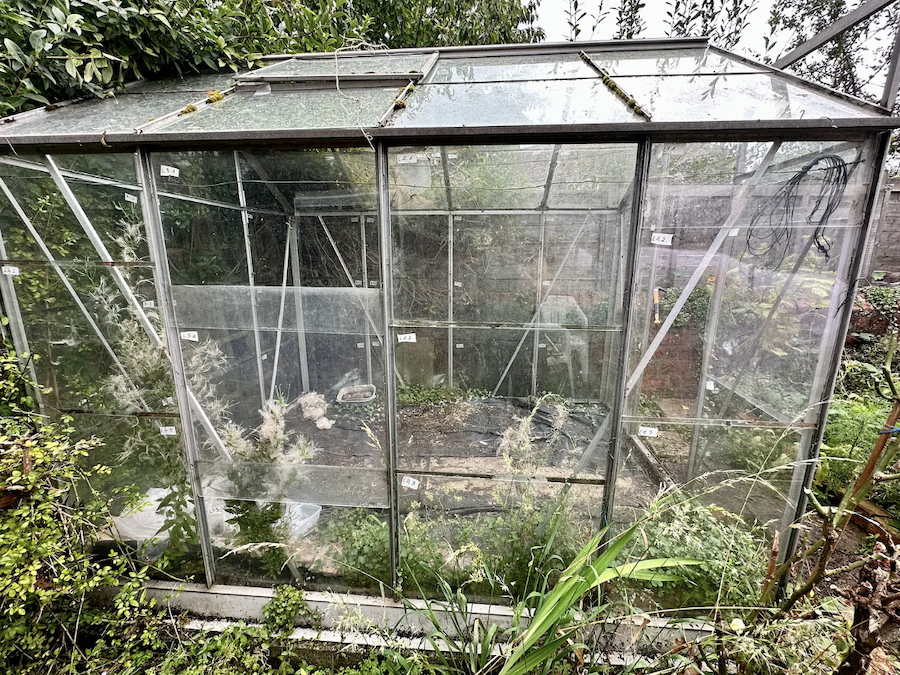
The Gestalt process of experience is cyclical, so at any given time, we may simultaneously sit with various stages of different experiences. For instance, I delivered a talk on liberation psychologies for the Therapy for Social Change yesterday (the edited video will be available next week here and on their YouTube channel). I spent the summer preparing it and arrived in a comfortable, serene state with a few natural butterflies in my belly, supported by a wonderful team. Despite all the efforts, the currently emerging spamming of Zoom events touched us all and distracted many of us from the core of the work. I am incredibly grateful for the solidarity in the room and the willingness to carry on regardless and not allow the trolls to take over the space – we all know they are broken, sad people. We were affected, and we stood our ground, which is wonderful to witness and feel.
I left this online space cognitively proud for standing up for my words and not allowing trolls to take over while my heart was aching and my body was shaken. I received wonderful feedback, private messages of support, three bunches of flowers from my husband to cheer me up and a lot of love and care from old and new good people in my life. I remained open to the fertile void left behind by this collective experience. Even though I entered that space very consciously aware of all benefits and risks, I still woke up with new, incredibly important realisations about my personal triggers, needs and general learnings.
Life is never just one thing. Experiences touch us. The real impact can often get overlooked. This is why I like sitting and listening to my fertile voids.
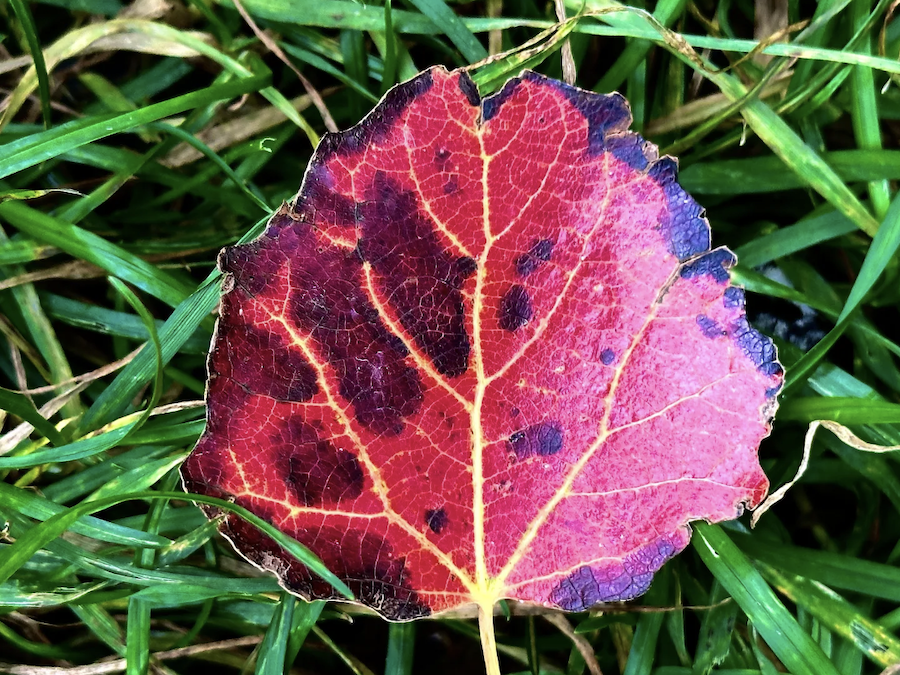
Reflection
This week, I am sharing my personal favourite ways to practice the ability to tap into and sit in the fertile void stage of my experiences; feel free to try them out:
- Quick somatic check-in. When something unexpected happens, for example, a car speeds nearby and I am left shaken, I make time to check in with myself. I stop walking, place my hand on my chest, take a deep breath, and notice what my body and nervous system need – sometimes, I need to stop and breathe; on other occasions, I need to walk off or talk to someone.
- Thinking time. Developed by Nancy Kline, this approach is used in coaching, but I like to integrate one element: asking myself, “What else is there?” – it’s a powerful question that opens the deeper layers of experience. We seem to know a lot, but what else? What else am I feeling? What else bothers me about this experience? What else is there that I am not noticing?
- Sitting with the silence. When working with grief and loss, we explore the quality of silence – which can be a challenging process for people carrying a lot of trauma. Many of us may find silence incredibly hard to hold. Here, I would only recommend a soft question: “What is in this silence (pause) for me?” – simply because it reminds us to slow down and make space for the fertile void. And if silence is indeed triggering, please remember that I mean silence metaphorically – what is in the void after the experience. You can reflect while listening to soothing music on the move. In fact, I love doing it on the train while looking out of the window or while people-watching in a coffee shop.
(However you approach your fertile voids, I wish you a soft weekend. I will be filling it up foraging for rose hips with a friend. Have a lush weekend!)
This post was originally posted on Substack in our Syl’s Liberation Psychologies Newsletter.

